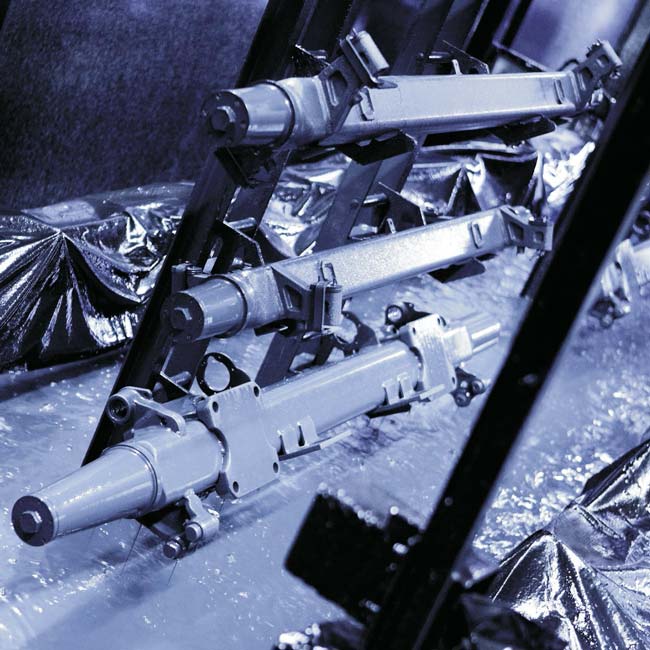Record-breakingly lightweight
There are many factors that affect the climate balance of a trailer. One of the most impactful is weight: every gram less not only increases the payload of the trailer, but also saves energy and thus CO2 and costs. The engineers in the BPW Group are therefore designing solutions that make the running gear as light as possible and at the same time as robust and durable as possible.
Airlight II with leightweight components, for example, is the lightest running gear on the market and makes it very easy to transport more profitably and in a more climate-friendly way. With a new type of trailing arm and other lightweight components, BPW is able to reduce the module weight of the 9-tonne trailer running gear below 370 kilograms for the first time – a record that enables super-efficient transport.
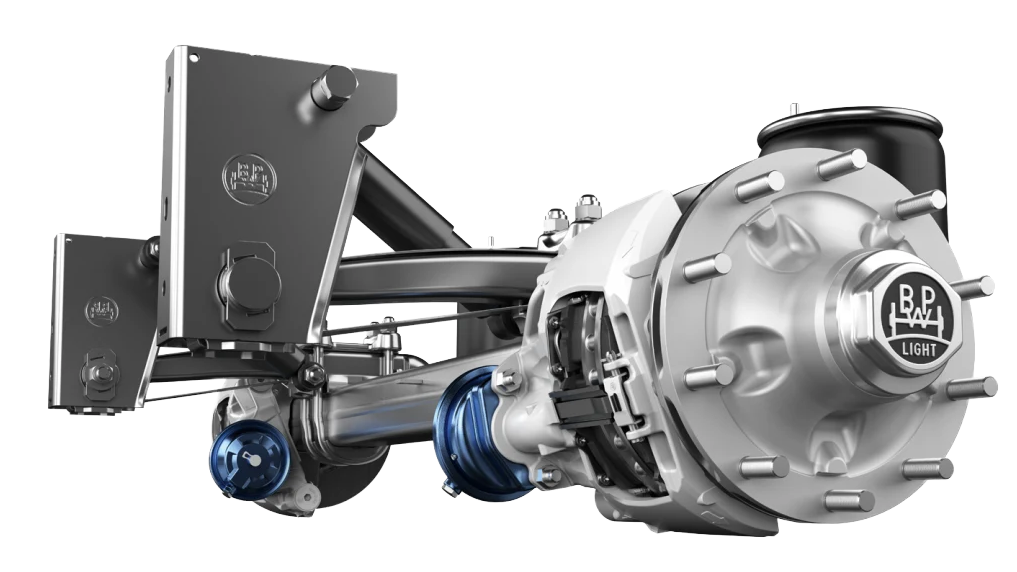
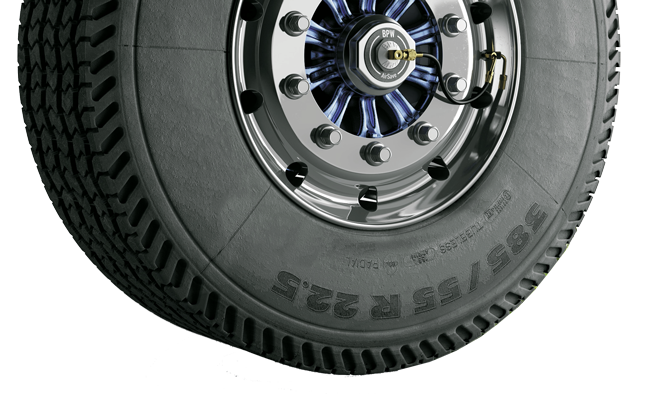
Intelligent data for more safety
An important factor for safety and efficiency in transport is, for example, the air pressure of the truck tyres: With AirSave, BPW has developed a system that not only continuously monitors the air pressure, but also keeps it permanently and fully automatically within the optimum range. The EU will make the installation of tyre pressure monitoring a legal requirement from 2022. BPW AirSave, which was awarded the European Transport Prize for Sustainability, fulfils this requirement to a much greater extent.
The system offers many advantages for hauliers! We expect a typical mileage of 120,000 km/year and an average pressure deviation of 10 percent:
kilos CO₂ can be reduced per vehicle per year by installing the AirSave System
euros are saved alone by fuel and tire savings in the 3-axle trailer
Additionally, the risk of accidents and downtimes is reduced and drivers save time
… and shreds of burst tyre carcasses contaminating the edge of the motorway as hazardous waste is avoided.
Another example of the smart use of intelligent technology is the BPW iGurt for securing loads: a handy, robust sensor, which is strapped onto the tension belt, indicates the pretensioning force directly on the housing by means of an LED and also transmits the data to a mobile phone app of the driver while driving. The iGurt and the app can be operated intuitively – and in future they will also be networked with telematics systems. The freight forwarder can thus also track and document load securing from a distance. This has the potential to greatly simplify load securing checks: In future, road trains equipped with the iGurt could be checked and waved through from a distance. Inadequately secured loads are the cause of an estimated 20 to 25 percent of all accidents in heavy goods traffic.
The technology could make a major contribution to reducing this figure. It could also play an important role in autonomous transport in particular: The iGurt has met a great response from research institutions and innovation laboratories in the vehicle and insurance industries that are working on this topic.
Keyword “autonomous transport”: BPW is investigating how the trailer can contribute to autonomous driving by means of intelligent sensors, a cloud-based data platform and methods for online and offline data processing. The IdenT (Identification of dynamically and safety-relevant trailer states for automated trucks) research project is funded by the Federal Ministry of Economics and Energy. The company works together with many strong partners in this project: Fraunhofer LBF and ITWM, the Institute for Mechatronic Systems at the University of Hanover, Viscoda GmbH, Okit GmbH, Industrial Science GmbH and ts3 GmbH.
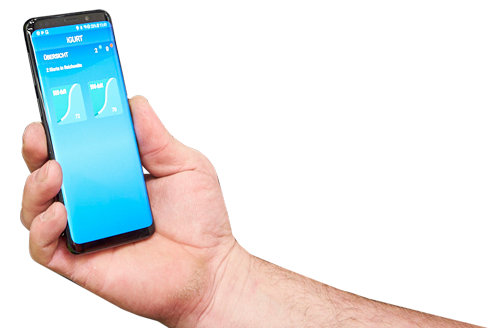
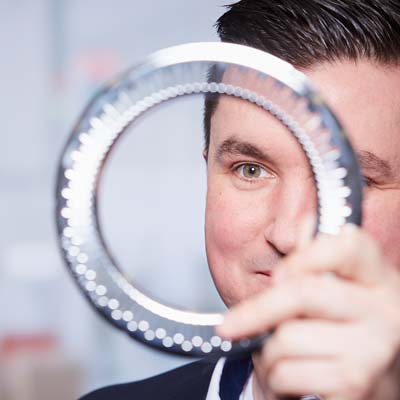
Ensuring sustainability together
BPW also expects continuous improvement in environmental efforts, for example in compliance with DIN ISO 14001 and/or Regulation (EC) No. 1221/2009 of the European Parliament and Council (EMAS). BPW partners are also committed to the RoHS EC Directives and the REACH Regulation, which prohibits the use of hazardous substances. In 2019, BPW additionally extended its supplier contracts and conditions of purchase by child rights/child labour. Suppliers thus pledge theirself to recognise the rights of children in the performance of their services and to refrain from using child labour.
New criteria for auditing suppliers
includes the topics of occupational safety and child labour. The team audits up to 60 suppliers every year – the new criteria have been used since spring 2019. At the end of 2019, around 15 percent of suppliers were audited in accordance with the new requirements. All others are to follow by 2025.
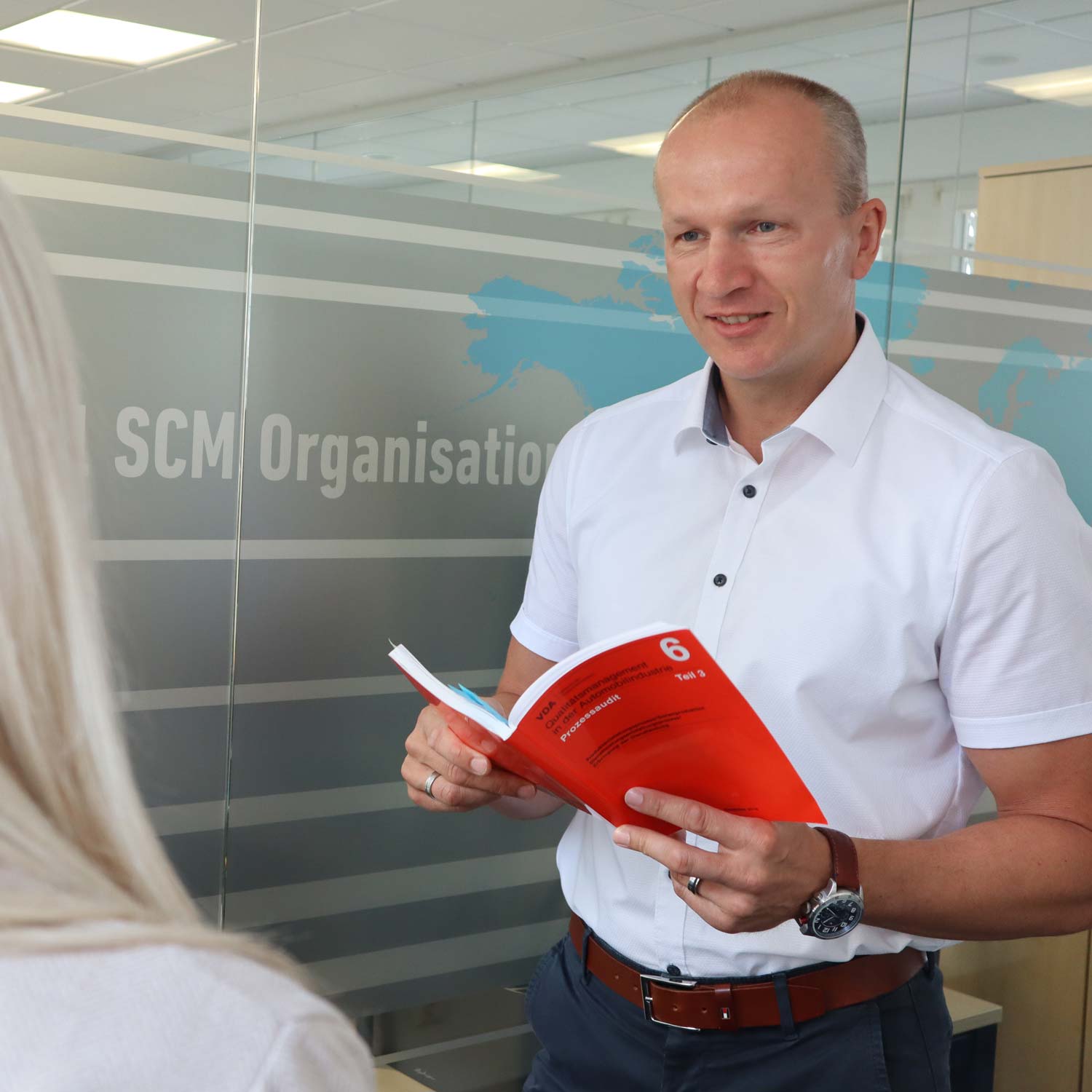
Sustainability has many facets
When BPW plans new production facilities or optimises existing processes, it always does so with sustainability in mind. This involves both the conscious use of operating resources and materials and the healthy organisation of work for employees. Due to the high degree of vertical integration in BPW’s own production there are many different examples of this:
In order to combine axle stub and axle beams, BPW previously used flash welding processes. The welding heat required was generated by a high flow of electrical current at the contact point between the components. By converting this process to friction welding, in which the welding temperature is generated by rotation and pressure, it has been possible to reduce energy consumption per axle by more than 60 percent.
Thanks to extensive optimisation measures on a KTLZN coating site, which protects BPW running gears against corrosion, it was possible to reduce chemical consumption in the pre-treatment area by around 25 percent. In addition, the use of alternative substances for pre-treatment has enabled the bath temperature to be reduced by 20 degrees in two zones, thus also reducing energy consumption. Overall, the bath service life was extended and the volume of wastewater was reduced by 30 percent. The measures carried out are to be adapted for further KTLZN coating sites in the factories in the next few years.
BPW supports employees in production in the prevention of health in the workplace. Often it is only a minor matter – the correct adjustment of the seat, a slightly different movement sequence that relieves the back, or a height adjustment when storing materials – that can be used to optimise the movement sequences. The decisive factor is that every workplace is different and that the needs of the employees are also very individual. Together with the employees, an expert analyses the individual work steps and develops – where necessary – improvement measures. Display boards at the workplaces show the optimum movement sequences and are intended to remind employees to implement them consistently. Newly equipped workplaces are consistently ergonomically designed.
